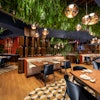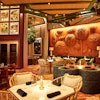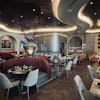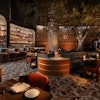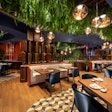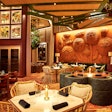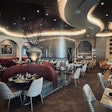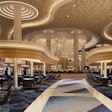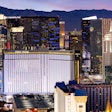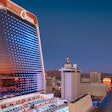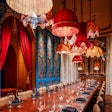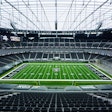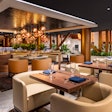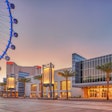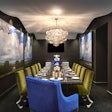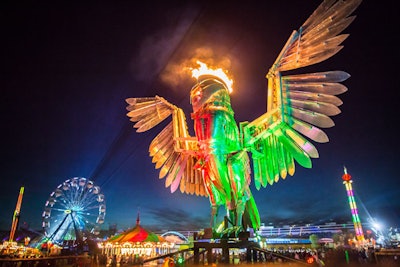
Insomniac's 40-year-old founder, Pasquale Rotella, started the business two decades ago in a grassroots manner not unlike many tech entrepreneurs: in his garage. He then built the company from its beginnings hosting raves into what is likely the world’s biggest producer of dance music experiences and festivals, including the Electric Daisy Carnival in Las Vegas as well as versions elsewhere around the globe.
With the marquee Vegas event coming up on June 19 to 21 and the recent announcement that Insomniac will partner to produce the third edition of Life Is Beautiful this September, Rotella has plenty on his plate. BizBash talked to the event entrepreneur about tackling competition, creating community, and the state of the festival market.
Festivals often face competition from unofficial brand-hosted events. Electric Daisy Carnival consistently avoids this sort of poaching. How?
The reason why E.D.C. Vegas doesn’t have that same problem is because we were proactive. We get into partnerships with as many people as we think are potentially able to do an event during that time. We work with all the nightclubs in town. We’re promoting those events ourselves. We’re not promoting against ourselves, because our event sells out. If anything, we're providing more for our fans to experience, and we’re all for that—it makes E.D.C. more of a destination. We have just as many events happening [around town as happen around festivals like Coachella], but we’re actually involved with them.
Vegas is also so established [as a music destination]. There are residencies all over town. It’s easy for an established nightclub or property that’s already there to do events during E.D.C., but it’s difficult for an independent promoter to come in to produce an event because they’re going to deal with exclusivity clauses. We went in there and created partnerships with those properties that are in the dance music business and the event business so they wouldn’t create events solely on their own. I always wanted there to be options for things for people do to because I didn’t think it would complete with E.D.C.
Much has been made lately about the new energy in Las Vegas—for locals and not just tourists. Does the Electric Daisy Carnival make an effort to involve the local community?
We hire as many locals as we can, get as many involved as possible. We give $1 per ticket toward local charities. We co-promote lots of E.D.C. events with local businesses. Locals buy about 10 percent of tickets, and we [also] comp quite a few.
We partnered with Life Is Beautiful because we wanted to do more in the community. I love Las Vegas. I own two bars in downtown Las Vegas. And the more we can do to help Las Vegas thrive, the better we feel.
Among locals and visitors alike, how do you create community within the festival grounds?
We do a lot of things to influence people to interact with one another. Our event is about great music, but it’s much more than that: It’s also about like-minded people getting together, expressing individuality, creating a unique event. I always tell people, don’t just come and stand in front of the stage and watch someone play. Explore and dance with a stranger. I encourage people to dress up. That makes us unique from a concert or traditional festival. It’s about the culture, and within the culture, there’s a community.
[PULLQUOTE]
There are not many festival producer C.E.O.s that have a personal relationship with the fans. [The connection] starts with social media. At the events, I love talking to them and learning from them and taking pictures with them. And I listen to things that they like or don’t like. I learn from them, they’re teaching me all the time and informing me of what we're doing right and what we're doing wrong.
As you’re learning from fans and improving, do you see other festivals making certain mistakes time after time?
I’ve made every mistake possible. And listen, I started this company out of my living room and my garage at my house. I learned so many things along the way and am still learning and still striving to create the perfect experience. This year will be better than last year, and so will the following year be better.
[As for other festivals], I’d say the business as a whole gets better and better every year. It’s beautiful to see. People want to separate—the media or event producers want to separate themselves from each other. But we’re really all in this together. If something goes wrong at a festival, it affects all of us, or even if someone has a bad time. As much as people want to think they stand on their own, some people just want to go out to large music festivals, and they’re not separating this guy from that guy, so it’s important for everyone to look out for each other. I’ve called competitors before and said, "This is a bad look for the industry or the fans.”
With the success and proliferation of so many recent events—and Vegas newcomers like Rock in Rio U.S.A. and Life Is Beautiful—are we reaching maximum capacity for music festivals in North America, or the world?
Definitely not in the world. Our international expansion is going really well and we have a lot to announce there. In regards to the States, we have some markets that we’ve done before that we’re going back into but it is pretty saturated. There are some markets that are smaller that can’t do a 50,000-person festival but they definitely could use a 10,000-person festival. But there's not a lot of room.
That said, I think there’s a lot of people that still haven’t experienced festivals, and I think that festivals are maturing and becoming easier to understand for people. I do have a vision that one day [the experience] will be as accessible as going to a bar.
[At one time], dance music festivals were foreign, looked at as just underground raves. There was no separation [in the perception]—and that's different now. There's so much going on ... and it all complements each other. But dance music was at the core of the multi-genre festivals coming together when they did.
